Sustainable Resilience

How does climate resilience relate to sustainable development ?
Climate resilience and sustainable development are interconnected concepts that aim to ensure the long-term well-being of our planet and its inhabitants. They share common goals, such as addressing global challenges like poverty, inequality, and environmental degradation by integrating short-term actions with long-term visions. Climate resilience refers to the ability of a system, community, or society to withstand and recover from the impacts of climate change, including extreme weather events such as hurricanes, floods, and droughts. It involves adapting to changing environmental conditions while maintaining essential functions and services. Key elements of climate resilience include adaptation, mitigation, preparedness, and recovery. Sustainable development is development that meets the needs of the present without compromising the ability of future generations to meet their own needs. It balances economic growth, social inclusion, and environmental protection for long-term prosperity. The three pillars of sustainable development are economic, social, and environmental. The intersection of climate resilience and sustainable development lies in their complementary goals, mutual benefits, integrated approaches, and policy coherence. Achieving climate resilience can support sustainable development by reducing vulnerabilities to climate change, which in turn can help maintain economic stability and protect livelihoods. Pursuing sustainable development can enhance climate resilience by promoting clean energy sources, efficient resource use, and robust ecosystems that can absorb the impacts of climate change. Integrating climate resilience into sustainable development strategies ensures that efforts to combat climate change are not isolated but rather part of a broader plan for sustainable living. This includes investing in renewable energy, building green infrastructure, and fostering sustainable agriculture practices. Governments and organizations must ensure policy coherence between climate action and sustainable development goals. By aligning policies, they can avoid conflicting objectives and maximize synergies between these two critical areas. In conclusion, climate resilience and sustainable development are not only compatible but also mutually reinforcing. Building resilience against climate change impacts is an integral part of achieving sustainability, just as pursuing sustainable pathways can strengthen our capacity to adapt and thrive in a changing climate. Together, they offer a comprehensive approach to securing a resilient and sustainable future for all.

How do ecosystem-based adaptation methods contribute to climate resilience ?
Ecosystem-based adaptation (EBA) methods play a crucial role in building climate resilience by leveraging the natural capacity of ecosystems to mitigate and adapt to the impacts of climate change. These approaches focus on conserving, restoring, and promoting sustainable management of ecosystems to provide essential services that help communities cope with climate-related stresses. Below are several ways EBA methods contribute to enhancing climate resilience: Protection from extreme events, enhancement of biodiversity, promotion of sustainable livelihoods, regulation of water resources, carbon sequestration and storage, community empowerment and education, disaster risk reduction, and research and innovation.

What are the benefits of climate resilience ?
Climate resilience is crucial for adapting to climate change impacts and recovering from related damages. It offers economic, social, environmental, political, and cultural benefits. These include reduced damage costs, protection of assets, enhanced productivity, improved public health, community cohesion, continuous education, biodiversity conservation, resource stewardship, reduction of greenhouse gas emissions, increased government legitimacy, international leadership, policy innovation, preservation of heritage, strengthening of cultural practices, and promotion of cultural exchange. Building climate resilience ensures more robust, equitable, and sustainable futures.

How can businesses contribute to climate resilience ?
Climate resilience refers to the ability of a system, community, or society to withstand and recover from the impacts of climate change. Businesses have a significant role to play in building climate resilience. Here's how they can contribute: 1. Reducing Greenhouse Gas Emissions: Businesses can invest in energy-efficient technologies and practices to reduce their carbon footprint. They can also switch to renewable energy sources like solar, wind, or hydroelectric power to significantly reduce greenhouse gas emissions. 2. Sustainable Sourcing and Production: Businesses can ensure that their suppliers adhere to sustainable practices, reducing the environmental impact of their products. By using resources more efficiently and reducing waste, businesses can minimize their environmental footprint. 3. Investing in Research and Development: Businesses can invest in research and development of clean technologies that can replace fossil fuel-dependent processes. Encouraging innovation within the company can lead to new solutions for reducing environmental impact and increasing sustainability. 4. Adapting to Climate Change: Businesses can design and build infrastructure that is resistant to extreme weather events caused by climate change. Implementing efficient water management systems can help businesses adapt to changing water availability due to climate change. Diversifying supply chains can reduce the risk of disruptions caused by climate-related events. 5. Advocating for Climate Action: Businesses can use their influence to advocate for policies that support climate resilience and sustainability. Collaborating with other businesses, governments, and non-governmental organizations can amplify efforts to build climate resilience. Raising public awareness about climate change and its impacts can help create demand for more sustainable products and services. 6. Community Engagement and Support: Providing education and training on climate resilience can empower communities to adapt to changing climate conditions. Supporting disaster preparedness programs can help communities cope with climate-related emergencies. Partnering with local organizations can help businesses understand and address the specific challenges faced by their communities due to climate change.

What role do governments play in promoting climate resilience ?
Governments play a crucial role in promoting climate resilience. They can take various actions to mitigate the impacts of climate change and build resilience among their citizens. Here are some ways governments can promote climate resilience: 1. Enacting and Implementing Policies - Reducing greenhouse gas emissions - Protecting natural resources - Investing in infrastructure 2. Providing Financial Support - Funding research and development - Providing grants and loans - Creating incentives for businesses 3. Educating the Public - Raising awareness - Training professionals - Promoting behavior change 4. Collaborating with Other Stakeholders - Partnering with NGOs - Engaging with the private sector - Working with international organizations
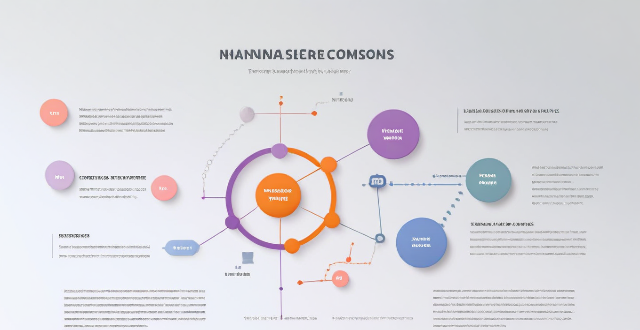
What are some innovative examples of companies integrating climate resilience into their CSR frameworks ?
Incorporating climate resilience into corporate social responsibility frameworks is becoming increasingly important. Here are some innovative practices by companies like Unilever, Microsoft, Adidas, Tesla, and Patagonia to reduce environmental impact and build resilience against climate change effects.

How can we measure the effectiveness of climate resilience strategies ?
Measuring the effectiveness of climate resilience strategies is crucial for ensuring that communities and ecosystems are adequately prepared for the impacts of climate change. Key factors to consider when evaluating the success of these strategies include assessing impact reduction, monitoring adaptive capacity, evaluating systemic resilience, long-term sustainability, scalability and replication, and community engagement and perception. By considering these factors and using a combination of quantitative data analysis and qualitative assessments, we can comprehensively measure the effectiveness of climate resilience strategies. This will help in refining current approaches and informing future strategies to build a more resilient world in the face of ongoing climate change.

How can civil society organizations contribute to building resilience against climate conflicts ?
Civil society organizations (CSOs) are essential in building resilience against climate conflicts through advocacy, awareness-raising, capacity-building, and community-based adaptation. They advocate for policies that promote climate resilience, raise awareness about climate change impacts, build community capacity to cope with climate stressors, and support community-led adaptation initiatives. CSOs collaborate with various stakeholders to ensure climate change is addressed in national and international agendas, disseminate information on climate risks and adaptation strategies, provide technical assistance and resources for locally-led projects, and engage in livelihood diversification, food sovereignty, and ecosystem conservation efforts. By working together, CSOs contribute to a more equitable and sustainable future.

How can companies incorporate climate resilience into their workforce development strategies ?
Incorporating Climate Resilience into Workforce Development Strategies Climate resilience is essential for businesses to withstand and recover from climate-related stresses and shocks. Companies can build a resilient workforce by developing a climate resilience training program, integrating sustainability into company culture, enhancing adaptive capacity, building partnerships and collaborations, investing in technology and innovation, promoting health and well-being, and implementing resilience in operations. These strategies require a multifaceted approach that includes education, cultural integration, skill enhancement, partnerships, technological innovation, health promotion, and operational resilience. By taking these steps, companies can protect their business interests and contribute positively to the global effort in combating climate change.
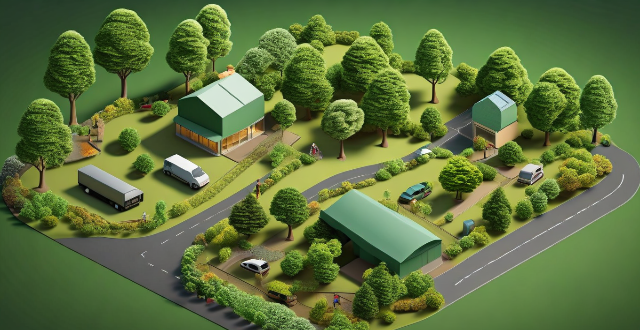
What are the benefits of using sustainable energy sources ?
Using sustainable energy sources provides environmental, economic, and social benefits. These include reduced greenhouse gas emissions, improved air quality, conservation of natural resources, protection of ecosystems, cost savings, job creation, energy independence, stable energy prices, improved public health, community resilience, education and innovation, and increased energy access. Transitioning to sustainable energy is essential for our future prosperity and survival.
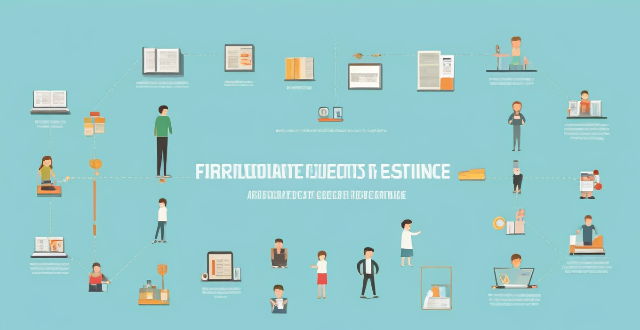
How can we promote resilience in adolescents during their developmental years ?
The article discusses the importance of promoting resilience in adolescents to help them cope with various challenges during their developmental years. It suggests several strategies, including encouraging positive thinking, building problem-solving skills, promoting social support, encouraging participation in extracurricular activities, teaching emotion regulation skills, and promoting healthy lifestyle habits. These strategies can help adolescents develop the resilience they need to thrive during their developmental years.

How can climate services contribute to sustainable development ?
Climate services contribute to sustainable development by providing essential information for decision-making in various sectors. They help inform policy decisions, support agriculture and food security, enhance natural resource management, promote energy efficiency and renewable energy, improve public health outcomes, and encourage resilience and adaptation. By utilizing the insights gained from climate services, we can work towards a more resilient, equitable, and sustainable future.

How do climate model predictions inform sustainable development goals ?
Climate model predictions are vital for guiding sustainable development goals (SDGs) by providing insights into future climate conditions. They help project future climate scenarios, assess risks and vulnerabilities, support policy decisions, promote cross-sectoral collaboration, and enhance public awareness. By using these predictions, policymakers can make informed decisions that promote sustainability and resilience, contributing to the achievement of the United Nations' 2030 Agenda for Sustainable Development.

What role does discipline in sports play in achieving personal goals and mental resilience ?
The text discusses the importance of discipline in sports for achieving personal goals and building mental resilience. It outlines key aspects such as setting clear objectives, consistent practice, overcoming obstacles, self-regulation, focus and concentration, and resilience under pressure. The article emphasizes that discipline not only enhances physical performance but also strengthens mental fortitude, enabling athletes to reach their full potential and thrive in their respective sports.

What strategies can coaches use to foster resilience and mental toughness in their athletes ?
Strategies for Coaches to Foster Resilience and Mental Toughness in Athletes: Emphasize the Importance of Mindset: Encourage positive self-talk, visualization techniques, and goal setting. Build a Supportive Environment: Create an open communication environment, promote teamwork, and provide constructive feedback. Teach Coping Mechanisms: Introduce stress management techniques, problem-solving skills, and time management strategies. Incorporate Adversity Training: Simulate pressure situations, discuss overcoming setbacks, and incorporate physical challenges. Lead by Example: Model resilience, share personal experiences, and show a commitment to continuous learning.

How does climate adaptation relate to sustainable development goals ?
Climate adaptation is a vital component of sustainable development goals (SDGs) as it helps reduce vulnerabilities and build resilience to the adverse effects of climate change, thereby contributing to the achievement of several SDGs. Relevant SDGs include Goal 1: No Poverty, Goal 2: Zero Hunger, Goal 3: Good Health and Well-being, Goal 6: Clean Water and Sanitation, Goal 11: Sustainable Cities and Communities, Goal 13: Climate Action, and Goal 15: Life on Land. Strategies for integration include policy coherence, financial investment, capacity building, stakeholder participation, risk assessment, research and innovation, and education and awareness. By addressing the challenges posed by climate change through effective adaptation strategies, nations can work towards creating more resilient societies that are better prepared to face future climate risks while continuing to progress towards other SDGs.
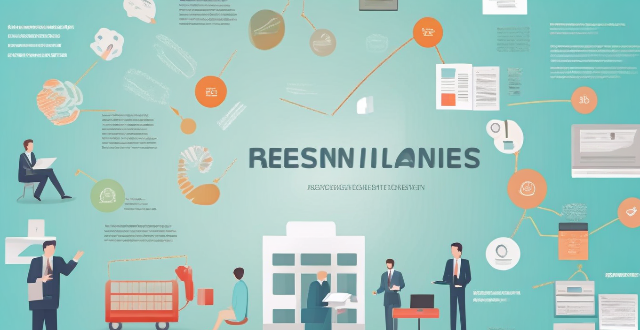
What is climate resilience ?
Climate resilience is the ability of systems, communities, or societies to adapt to and recover from climate change impacts. It involves measures like infrastructure upgrades, renewable energy use, disaster risk reduction, and financial investment. Benefits include economic stability, public health improvement, ecosystem preservation, and social cohesion.

How can businesses contribute to the achievement of the Sustainable Development Goals ?
Businesses can contribute to the achievement of the Sustainable Development Goals by adopting sustainable practices, promoting equitable workplaces, supporting local communities, innovating for sustainability, ensuring transparency and accountability, maintaining ethical business practices, and fostering education and awareness. These actions not only help achieve global development targets but also enhance a company's long-term success and resilience.

How can climate information sharing contribute to sustainable development goals ?
**How Can Climate Information Sharing Contribute to Sustainable Development Goals?** Climate information sharing plays a crucial role in achieving sustainable development goals (SDGs). This article discusses the various ways in which climate data can contribute to environmental sustainability, social equity, and economic growth. Key points include: 1. **Improving Resilience to Climate Change**: Early warning systems, adaptation planning, and infrastructure development are all enhanced by shared climate information. 2. **Supporting Sustainable Agriculture**: Farmers can use climate data for crop planning, water management, and pest and disease control. 3. **Promoting Clean Energy Solutions**: Climate information aids in renewable energy site selection, energy efficiency, and demand forecasting. 4. **Enhancing Biodiversity Conservation**: Habitat protection, species survival, and ecosystem services are all influenced by climate trends. 5. **Advancing Gender Equality**: Providing women with climate information can empower them and reduce their vulnerabilities during climate-related disasters. 6. **Fostering Partnerships for Sustainable Development**: Multi-stakeholder engagement, international cooperation, and public-private partnerships are all facilitated by climate information sharing. In conclusion, ensuring that stakeholders have access to accurate and timely climate data is essential for making progress towards a more sustainable future.

What are the benefits of climate financing ?
Climate financing is crucial for mitigating climate change and adapting to its impacts. It supports projects that reduce GHG emissions and build resilience, stimulates economic growth through green investments, attracts private sector involvement, promotes international cooperation, helps achieve global climate goals, encourages innovation, builds resilience, contributes to SDGs, enhances policy coherence, and addresses environmental justice.

Can sustainable fishing practices help mitigate the effects of climate change on the environment ?
Sustainable fishing practices are crucial for mitigating the effects of climate change on the environment. These practices aim to conserve marine ecosystems, reduce carbon emissions from fisheries, promote responsible consumption, maintain biodiversity, enhance carbon sequestration, and promote ecosystem-based management. By adopting sustainable fishing practices, we can help maintain the health and balance of our oceans in the face of climate change. As individuals and communities, we must support these practices and make responsible choices when consuming seafood products to protect our planet's delicate ecosystems and ensure a sustainable future for all.

How does climate governance affect sustainable development goals ?
Climate governance plays a pivotal role in shaping the achievement of sustainable development goals (SDGs). The interconnectedness between environmental preservation and socio-economic advancement necessitates a comprehensive understanding of how climate policies and actions influence the broader spectrum of global development objectives. ## **Impact on Individual SDGs** ### *Goal 2: Zero Hunger* Climate governance directly influences food security by addressing factors such as droughts, floods, and temperature fluctuations that can disrupt agricultural productivity. Effective climate policies can help to: - Ensure stable crop yields through improved irrigation systems and drought-resistant crops. - Mitigate the effects of extreme weather conditions on farming communities. - Promote sustainable land use practices to prevent soil degradation. ### *Goal 7: Affordable and Clean Energy* The transition towards renewable energy sources is at the heart of both climate governance and sustainable energy goals. Policies that encourage the adoption of clean energy technologies contribute to: - Reducing greenhouse gas emissions associated with traditional fossil fuel consumption. - Increasing access to electricity in off-grid areas using solar or wind power. - Creating new economic opportunities in the renewable energy sector. ### *Goal 13: Climate Action* This goal is inherently linked to climate governance, as it calls for urgent action to combat climate change and its impacts. Efficient climate policies can lead to: - Implementation of emission reduction strategies. - Enhanced resilience to natural disasters. - Promotion of environmentally friendly industries and jobs. ## **Cross-Cutting Impacts** ### Health and Well-being Climate governance affects public health outcomes by addressing air quality issues and reducing exposure to extreme weather events. This contributes to achieving: - **Goal 3: Good Health and Well-being** by minimizing climate-related health risks. ### Economic Growth Policies that foster green economies and low-carbon development pathways are crucial for: - **Goal 8: Decent Work and Economic Growth** by creating sustainable job opportunities. - **Goal 9: Industry, Innovation, and Infrastructure** through investment in green technology and infrastructure. ### Social Equity Climate governance also has implications for social equity and inclusion, particularly when considering the disproportionate impacts on vulnerable populations: - **Goal 10: Reduced Inequalities** by ensuring that climate adaptation and mitigation efforts do not marginalize already disadvantaged groups. ## **Conclusion** In conclusion, climate governance is an integral component of advancing sustainable development goals. By prioritizing climate action, nations can make strides in eradicating poverty, achieving food security, promoting health and well-being, and fostering economic growth while protecting the planet for future generations. The synergistic relationship between climate governance and the SDGs underscores the necessity for integrated policy approaches that consider environmental sustainability alongside social and economic development.
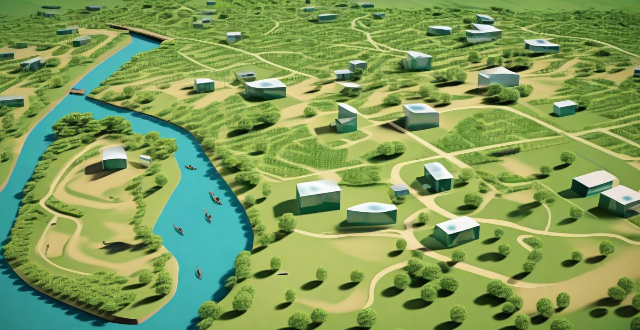
What is the role of ecosystem services in sustainable development goals ?
Ecosystem services, including provisioning, regulating, cultural, and supporting services, play a vital role in achieving sustainable development goals (SDGs) by providing essential resources for human well-being and economic development while maintaining the health and resilience of natural systems. Provisioning services like food security, clean water, energy, and medicinal resources are crucial for meeting SDGs 2, 6, and 7. Regulating services such as climate regulation, disease regulation, and flood and erosion control contribute to SDGs 13 and 15. Cultural services like recreation and tourism and cultural and spiritual values support SDG 8. Supporting services like soil formation and nutrient cycling and pollination are essential for agriculture and hence SDG 2. The interconnectedness of ecosystem services with other SDGs highlights their importance in building resilient societies that can withstand future challenges such as climate change, environmental degradation, and economic fluctuations. Preserving and enhancing these services is essential for achieving a sustainable future for all.

How can climate cooperation contribute to sustainable development goals ?
Climate cooperation plays a crucial role in achieving the United Nations' Sustainable Development Goals (SDGs), which aim to ensure that all people have access to the resources they need to live healthy, productive, and sustainable lives. By working together on climate action, nations can make significant progress towards several SDGs, including those related to poverty, hunger, health, education, gender equality, clean water and sanitation, affordable and clean energy, economic growth, and partnerships for the goals. Climate cooperation helps reduce the impacts of extreme weather events, natural disasters, and climate change on vulnerable communities, thereby contributing to poverty eradication efforts. It supports sustainable agricultural practices and promotes resilient food systems, ensuring food security and nutrition for all. Climate action helps reduce air pollution and improve public health outcomes, contributing to better respiratory health and overall well-being. Engaging women and girls in climate actions promotes gender equality by providing opportunities for leadership and participation in decision-making processes. Climate cooperation helps protect water resources from climate-related hazards, ensuring access to clean water and sanitation for all. Collaborative efforts in renewable energy research, development, and deployment contribute to universal access to affordable, reliable, and modern energy services. Climate cooperation creates green jobs and promotes sustainable economic growth, particularly in industries such as renewable energy and sustainable agriculture. Partnerships formed through climate cooperation drive innovation in sustainable technologies and infrastructure, fostering industrial development while minimizing environmental impacts. By addressing climate change, which disproportionately affects marginalized communities, climate cooperation helps reduce social and economic inequalities both within and among countries. Climate actions support urban planning and management that enhances inclusivity, resilience, and environmental sustainability in cities and human settlements. Climate cooperation encourages responsible consumption patterns and sustainable production methods, reducing waste and environmental degradation. This goal is directly linked to climate cooperation as it involves taking urgent action to combat climate change and its impacts. Through ocean conservation and sustainable fishing practices, climate cooperation helps protect marine ecosystems and biodiversity. By promoting sustainable land use and forest management, climate cooperation contributes to the conservation of terrestrial ecosystems and biodiversity. Climate cooperation builds peaceful societies and effective governance structures capable of managing environmental challenges and conflicts arising from resource scarcity. Climate cooperation itself is a form of international partnership that leverages collective action to achieve the SDGs more effectively. In conclusion, climate cooperation is not only essential for mitigating the effects of climate change but also for advancing the broader agenda of sustainable development. By integrating climate actions into national policies and international collaborations, we can work towards a future where environmental protection, social equity, and economic prosperity are mutually reinforcing goals.
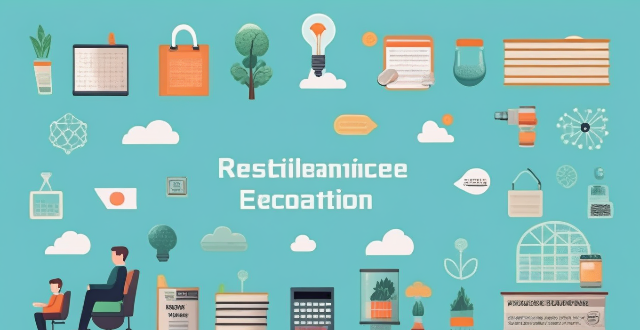
How can we build climate resilience in our communities ?
Climate resilience is essential for community sustainability and well-being. Building it involves education, sustainable infrastructure, ecosystem conservation, economic strategies, community engagement, and research. Efforts must be collective across all sectors to achieve a resilient and sustainable future.

What role does climate-smart technology play in sustainable development goals (SDGs) ?
Climate-smart technology plays a crucial role in achieving the Sustainable Development Goals (SDGs) by mitigating climate change, promoting sustainable agriculture, and supporting economic growth while protecting the environment. It can help reduce poverty by providing access to clean energy, improve agricultural productivity and resilience, improve public health by reducing air pollution, achieve affordable and clean energy, and directly contribute to climate action through the reduction of greenhouse gas emissions and adaptation to the impacts of climate change. Additionally, it can enhance other SDGs indirectly by promoting sustainable practices across various sectors.
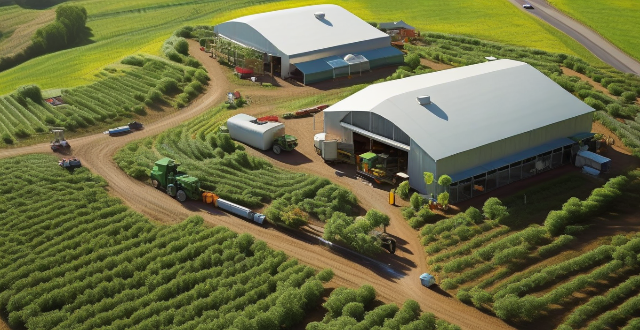
What role do sustainable farming practices play in maintaining food security amidst changing climate conditions ?
Sustainable farming practices are crucial for maintaining food security amidst changing climate conditions. They help farmers adapt to these changes by enhancing soil health, improving water management, promoting crop diversification, and integrating livestock and crop production. These practices also mitigate the impacts of climate change on agriculture by reducing greenhouse gas emissions, promoting biodiversity, and encouraging renewable energy use. Supporting smallholder farmers through training, access to markets, and cooperatives is essential for implementing sustainable practices at a larger scale. Overall, sustainable farming practices are vital for building resilient agricultural systems that can withstand climate change while ensuring food security for future generations.
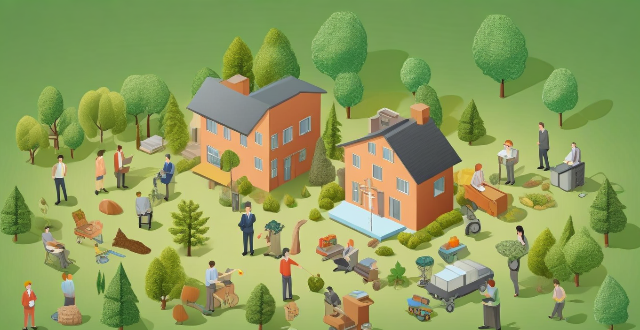
What is sustainable development and why is it important ?
Sustainable development is a concept that aims to meet the needs of the present without compromising future generations' ability to meet their own needs. It is crucial for addressing poverty, inequality, climate change, and environmental degradation. Sustainable development promotes economic growth, social inclusion, and environmental protection. It encourages renewable energy use, sustainable agriculture, and green technologies to create job opportunities and reduce unemployment. By ensuring access to basic services, it helps reduce poverty and improve living standards for all segments of society. Promoting gender equality is an integral part of sustainable development. It also focuses on reducing greenhouse gas emissions, adapting to climate change, conserving forests, protecting biodiversity and natural resources, controlling pollution, preventing conflicts over resources, aiding in post-conflict recovery, and reducing disaster risks. Sustainable development offers a framework for addressing complex global challenges while ensuring long-term ecological sustainability.

How can communities improve their resilience to climate change ?
Communities worldwide face challenges due to climate change, necessitating enhanced resilience. Key strategies include building awareness through education and training, upgrading infrastructure with sustainable solutions, conserving ecosystems, integrating climate considerations into planning, diversifying economies, and engaging communities in decision-making processes. These efforts not only help communities adapt but also contribute globally to combating climate change.

How can developing countries build resilience through climate adaptation ?
Developing countries can build resilience against climate change through sustainable infrastructure, renewable energy, sustainable agriculture, coastal and marine ecosystem enhancement, early warning systems, institutional capacity strengthening, and community education and empowerment.